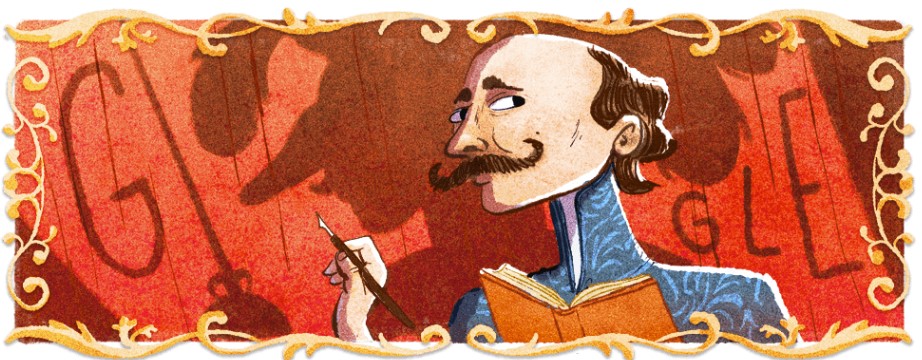Edmond Rostand: Google doodle celebrates literary brilliance of French poet

- Country:
- France
Spoiler Alert: This article contains spoilers. Proceed with caution if you have not watched the show/movie.
Today Google doodle on Edmond Rostand, French poet, and dramatist to celebrate his literary brilliance. He is associated with neo-romanticism and is known best for his 1897 play Cyrano de Bergerac. It is a play about a chivalrous swordsman with an oversized nose. The play’s sentimental hero—plagued by a love triangle—went on to symbolize the spirit of the French. On this day in 1901, Rostand was elected to the French Academy (l’Académie Française).
Edmond Rostand (Edmond Eugène Alexis Rostand) was born in 1868 in a southern port city called Marseille and grew up in a wealthy and cultured family. His father, a poet and an economist was a member of scholarly societies such as Académie de Marseille and Institute de France. As a young adult, Rostand attended Collège Stanislas in Paris, where he studied literature, history and philosophy. By the time he was 20-years-old, he had completed his first play, a one-act comedy called Le Gant Rouge. The play was performed at Cluny Theatre in 1888. Although Rostand’s first play received little fanfare, it didn’t discourage him from continuing to write.
A few years later, Rostand created his first successful play, Les Romanesques, which was a parody of Shakespeare's Romeo and Juliet. The satirical play follows two families who fake a feud to encourage their children to fall in love. When it premiered in 1894, it put Rostand on the map. Les Romanesques became so popular—even outside of France—that it was later adapted into The Fantasticks, the world's longest-running musical.
Three years after Les Romanesques, Rostand produced his most beloved work, Cyrano de Bergerac, in 1897. To this day, Cyrano de Bergerac remains one of the most popular plays in France, and people all over the world still seek modern versions of this tale.
More than a century later, his endearing tales continue to be performed and resonate with hopeless romantics all over the world.
Edmond Rostand’s work
Le Gant rouge, 1888 (The Red Glove)
Les Musardises, 1890
Les Deux Pierrots, ou Le Souper blanc (The Two Pierrots, or The White Supper), 1891
Les Romanesques,[10][11] 1894 (the basis for 1960 off-Broadway musical The Fantasticks)
La Princesse Lointaine (The Princess Far-Away),[12][13] 1895
La Samaritaine (The Woman of Samaria), 1897
Cyrano de Bergerac, 1897
L'Aiglon: A Play in Six Acts. 1900
Chantecler: A Play in Four Acts, 1910
La Dernière Nuit de Don Juan (The Last Night of Don Juan, in Poetic Drama), 1921
Le Cantique de L'Aile, 1922
Le Vol de la Marseillaise, 1922
Source: Google doodles, Wikipedia
Also Read: Google doodle celebrates Georgia's Independence Day!










